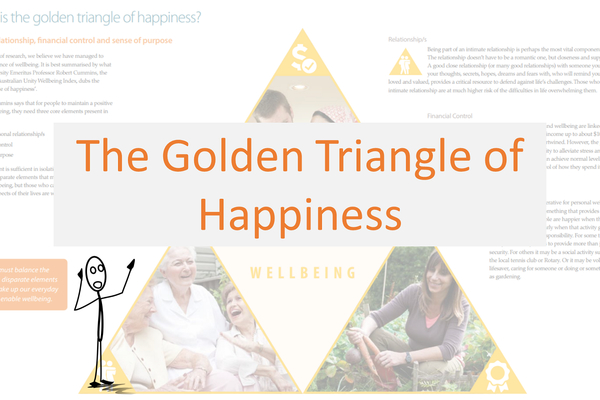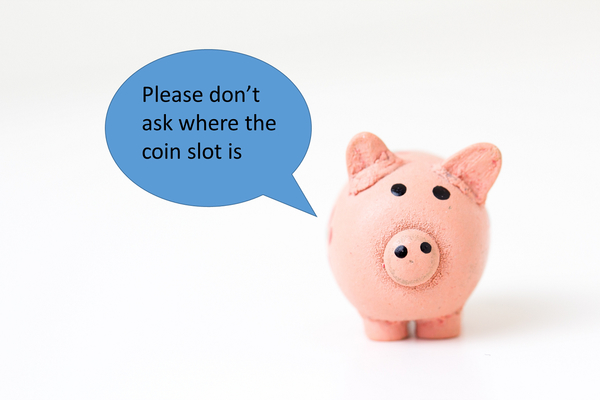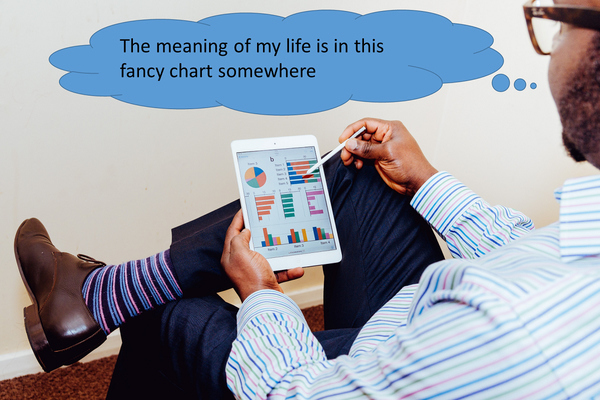
The fundamental goal of this blog is to introduce you (the reader) to different ideas, concepts, tools and knowledge that you can use to improve your health and well-being and be the best student you can be.
A secondary goal is to make myself feel important and show random photos of myself.
In today’s post, I want to introduce you to the Golden Triangle of Happiness – which, whilst sounding somewhat like a cult, is actually a simple evidence-based theory on the key contributors to well-being.
First a bit of background……
Back in 2000, Australian Unity (who are a health and finance organisation) conceptualised the idea of a national index of well-being that could be used to track social progress in Australia.
They turned to researchers Robert Cummins (Deakin University) and Richard Eckersley (Australian National University) to develop the index (the ‘Australian Unity Wellbeing Index’) and since 2001 over 40 national surveys have been conducted using this index.
In 2015, the researchers and the organisation released “What Makes Us Happy” – a report outlining the key findings of the survey over its 15 years of use.
The central concept described in the report was the Golden Triangle of Happiness – a distillation of three elements that reliably and strongly predict well-being: strong personal relationships, financial control and a sense of purpose.
In this post I want to expand on these three elements, consider their relationship to well-being and explore how you might go about developing one or more of these elements in your own life, if you believe it to be a concern.
Let’s start by discussing well-being
I’ve talked briefly about well-being previously on this blog and how it is the subjective experience of an individual and their functioning in a number of different areas of life.
To measure well-being in the ‘Australian Unity Wellbeing Index’ the researchers asked individuals to rate their satisfaction across 7 life domains: standard of living, health, achieving in life, personal relationships, safety, community connection, and future security. If you want to see the instrument and the domains, you can check your own well-being here: http://www.australianunity.com.au/health-insurance/sitecore/content/about-us/home/wellbeing/check-your-wellbeing
In general, an individual’s well-being is considered to be relatively stable over time. Yes it shifts with the challenges and celebrations of life, but typically returns to an inbuilt level that the researchers suggest is strongly genetically pre-determined. Basically, some of us are wired to be a little grumpier, some of us are wired to be a little happier, and regardless of what happens to us, our level of well-being tends to be relatively stable.
However this is not always the case. When the severity and intensity of a challenging event (e.g. loss of a partner or family member) is greater than the resources we have to cope with the event, our well-being can be significantly challenged and this can be a signal or risk of depression.
The Golden Triangle of Happiness
So what factors most reliably and strongly predict an individual’s well-being?
The researchers suggest three core contributors to well-being: strong personal relationships, financial control and a sense of purpose. Let’s explore each of these.
Strong personal relationships
Essentially this is having someone in our life with whom we have an intimate (not necessarily romantic) bond with; someone we can share our thoughts, secrets, hopes, dreams and fears with and who reminds us we are loved and valued.
Do you have someone like that in your life? It might be a partner (married or defacto) or best friend or very close colleague. Someone who you can be yourself around, and vice versa, someone who you care for deeply.
Note that this is quite different from the size of your social network or the number of friends, which is perhaps the metric that Facebook would like us to focus on. What is important here is the nature and substance of the relationship. Is it a person who you can trust with all of your inner world, and who shares similarly with you?
I’m not going to tackle the topic of how to build close relationships in this post (although I think its an interesting topic for future posts), however I will say that I believe its possible to build such relationships at any stage of our lives.

Financial control
The research shows that well-being rises with income until you hit around six figures (~ $100,000 for an individual) at which point the effect starts to wear off (naturally I’d like to test that finding by earning twice as much :)). It is not the money itself that leads to well-being, but the ability of money to be able to purchase good/services or experiences that alleviate stress and create a happy environment.
More importantly though it is the sense of control over your finances that is the powerful predictor of well-being. As students, it is likely you are not earning six figures (if you are, feel free to offload some my way). But how in control of your finances do you feel? Are you able to pay bills? Are you able to save for things you want? Are you able to afford things that bring you happiness?
I found was equally happy as a student, as I am nowadays, and I was earning considerably less. That is because I had fewer expenses, I owned everything I needed to keep me happy (e.g. my guitar), was enjoying my study and had a very cheap lifestyle.
In fact, some people with very meagre incomes can achieve high levels of well-being, because the things that bring them joy and happiness might be very cheap, or they have little to no debt.
In contrast, some people with very high levels of income can feel very much out of control if they have high levels of debt, an expensive lifestyle or never really learned the skills to manage their money.
If you feel that your finances are out of control, or you could use some help remember that there are financial assistance options within the university – http://www.flinders.edu.au/enrolling/fee-information/financial-assistance.cfm

Sense of purpose
Having a ‘sense of purpose’ is having something in your life that gives it meaning. Something you are responsible for, which you are highly motivated to do. It might be your job, your studies, a particular hobby or interest, volunteering or other similar social activity.
Some people know from a young age their sense of purpose. For others its a lifetime journey to discover what it is. It is also worth noting that your sense of purpose might change over the course of your life. When I was studying, it was my studies and future career that I considered to be my primary purpose. As I’ve got older, I’ve found equal if not more personal meaning and purpose in simple activities like gardening.
Regardless, those who report having a strong sense of purpose, report higher levels of well-being.
Finding your sense of purpose is a highly self-reflective exercise (i.e. its a bit wanky). Need a bit of a kick-start in terms of finding your sense of purpose? Don’t feel bad. I speak to a lot of people who have struggled or continue to struggle to achieve a sense of purpose – I always like this guy’s articles – https://markmanson.net/life-purpose which is a nice starting point. Also you might find a previous post of mine on values helpful also.

Closing remarks
If you’ve ever stood in the self-help section of a bookshop, you’ll know that lots of people want to tell you what the ingredients of a good life are. In this blog, I seek to share some of what I think are the more scientifically or clinically robust ideas are.
The Golden Triangle of Happiness: close personal relationships, financial control and sense of purpose is an easy to remember recipe for well-being that has been developed based on a number of national surveys of well-being over the past 15 years.
Does it resonate with you?
Would you like more blog posts on these topics?
Let me know in the comments below.
Want to comment on this article, or ask me a question about the health and well-being services available to you as a student? Feel free to comment below, abuse me on Twitter (@Dr_Furber), contact me on Skype (search for ‘eMental Health Project Officer Gareth’), or email me (gareth.furber@flinders.edu.au)

